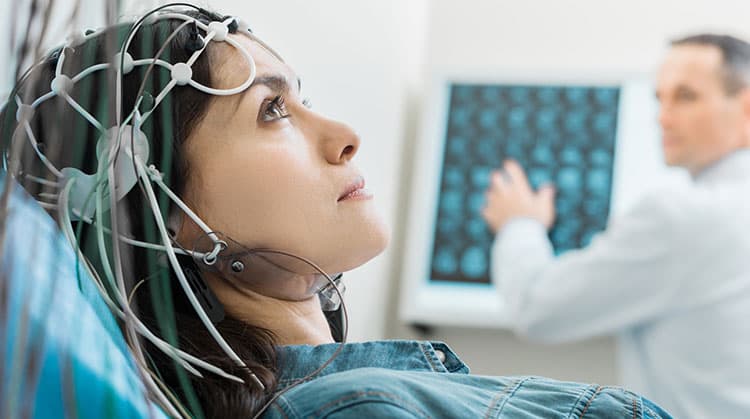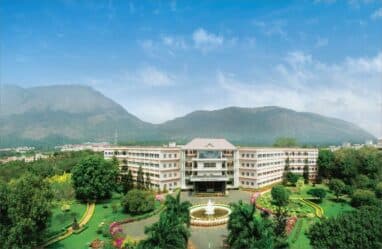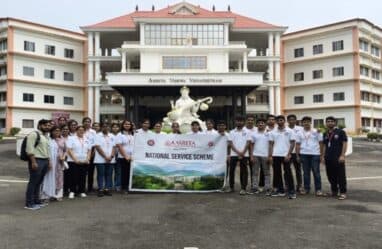National Medical Commission is now the great medical education regulator

National Medical Commission (NMC) will now onwards be the body to regulate medical education in India. Sources said, the new body for regulation of medical education has turned operational from 25 September.
As National Medical Commission has come into existence, its predecessor, the Board of Governors (BoG) which took the place of Medical Council of India (MCI) on September 26, 2018 has been dissolved.


Going into the past, one can say, Board of Governors was established about four years ago in the place of MCI. Board of Governors was meant to do the work of MCI.
It is interesting to note that former head of ENT department of All India Institute of Medical Sciences Dr. Suresh Chandra has been appointed as the chairman of National Medical Commission.
Rakesh Kumar Vats who was the secretary general in the Board of Governors of MCI is the secretary to the National Medical Commission.

Apply Now For – Graphic Era University Admission – [GEU], Dehradun Uttarakhand
Sources further said the National Medical Commission will have four autonomous boards to regulate graduate medical education, post graduate medical education, medical assessment and ratings and ethics and medical registration.
National Medical Commission will have 33 members and bringing out the new body for regulation of medical education also gives out a hint that all provisions of NMC Act of 2019 will also roll.

National Medical Commission will have a chairman and then 33 members. Out of these, 10 would be ex-officio members and 22 would be part-time members.
The ex-officio members also include the presidents of four autonomous boards.
The four autonomus boards under NMC Act are Under-Graduate Medical Education Board (UGMEB), Post Graduate Medical Education Board (PGMEB), Medical Assessment and Rating Board (MARB) and Ethics and Medical Registration Board (EMRB).
Also Read – toughest exams in India

Among the features of NMC Act are fee regulation on 50 percent seats in private medical colleges and deemed universities, end of inspections for college renewals.
It is interesting to note that NMC Act got approval from the President of India on 8 August last year and was published on the same day.

Presidents of four boards under National Medical Commission are Aruna Vanikar, head of Pathology department at GR Doshi, Institute of Kidney Diseases, Ahmadabad for UG medical board.
The other presidents are M.K. Ramesh, head of surgery at Bangalore Medical College and Research Institute for PG medical education board, Achal Gulati, Director Principal of B.R. Ambedkar Medical College, Delhi and B.N. Gangadhar, Director of NIMHANS in Bangalore as the president of medical ethics and registration board.
The new regulator also has also director of PGI Chandigarh Jagat Ram who is among the 11 full-time members.
Among the vice chancellors of who will be a part of National Medical Commission are Raj Bahadur, Vice Chancellor of Baba Farid University of Health Sciences, Vice chancellor of Atal Medical and Research University Surendar Kashap.
The others are Vice chancellor of Pandit Bhagwat Dayal Sharma University of Health Sciences O.P. Kalra. These vice chancellors are appointed for a period of two years, after which there will be a rotation to accomodate vice chancellors from other states.
Medical colleges in India
In India, a medical college is an educational institution that provides medical education.
These institutions may vary from stand-alone colleges that train doctors to conglomerates that offer training related in all aspects of medical care.
The term is synonymous with “medical school” as used in the US and some other countries.
MBBS is a degree in Modern Scientific Medicine established by Indian Medical Council Act 1956 and continued in National Medical Commission Act 2019. After MBBS, they register with state medical councils.
The Indian government keeps an updated list of these approved medical colleges.
Many persons without MBBS degrees practice like doctors in India. They are called quacks. Quacks are punishable with imprisonment of up to 1 year under section 15 of Indian Medical Council Act 1956 and section 34 of National Medical Commission Act 2019.
Admissions to courses in medical colleges in India have been streamlined in the last few years.
While certain states had their own entrance tests to admit students into medical couses, a couple of other states had admitted students into medical colleges based on their marks in the 12th standard exams.
Students who wished to join medical colleges at graduate level must have good pass percentage in 12th standard exam with compulsory subjects as Biology, Physics and Chemistry.

Post NEET, candidates must attend counselling to secure a seat in a medical college. Seats are allotted based on student’s choice, performance in NEET and availability of seats.
NEET Exam is also known as National Eligibility cum Entrance Test and is conducted by National Testing Agency (NTA).
NEET UG is for an entrance test for those who wish to join medical colleges for undergraduate medical education and NEET PG is for those who wish to join post graduate medical courses in medical colleges.
S Vishnu Sharmaa now works with collegechalo.com in the news team. His work involves writing articles related to the education sector in India with a keen focus on higher education issues. Journalism has always been a passion for him. He has more than 10 years of enriching experience with various media organizations like Eenadu, Webdunia, News Today, Infodea. He also has a strong interest in writing about defence and railway related issues.






